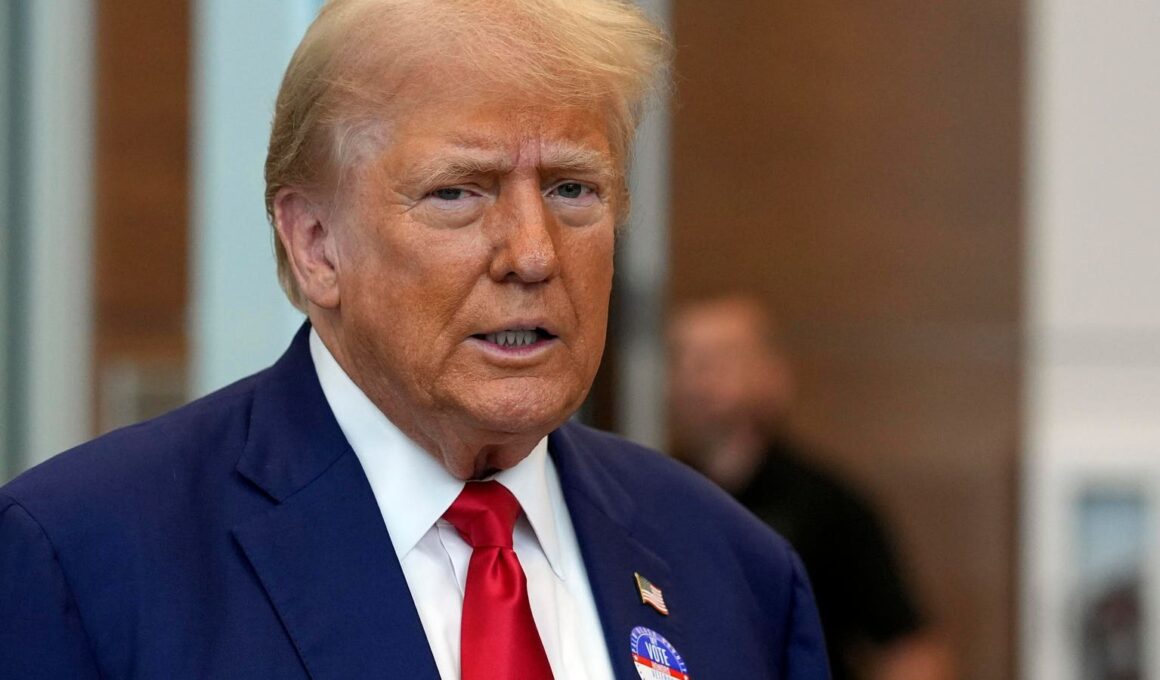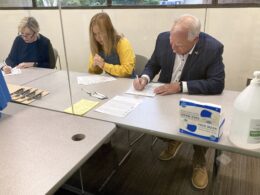Topline
Former President Donald Trump cast his ballot in Florida’s state primary on Wednesday, and he can continue to vote in his home state even after his felony hush money conviction in New York, where he is set for sentencing next month.
Former President Donald Trump talks at the Palm Beach County Supervisor of Elections.
Key Facts
Trump—a Florida resident since 2019—voted in Palm Beach, Florida, and spoke with reporters outside the polling site after casting his ballot ahead of a campaign rally in Asheville, North Carolina.
As a Florida resident with an out-of-state conviction, Trump would only be prohibited from voting if the state where he was convicted restricts him from voting, according to the Florida Division of Elections.
According to New York law, Trump would only be restricted from voting if he is behind bars, meaning Trump can still vote in Florida as long as he avoids prison time in New York.
Trump faces a maximum sentence of 136 years in prison and up to $170,000 in fines, at $5,000 and/or four years in prison per offense, though legal experts doubt he will see jail time as a first-time offender.
Get Forbes Breaking News Text Alerts: We’re launching text message alerts so you’ll always know the biggest stories shaping the day’s headlines. Text “Alerts” to (201) 335-0739 or sign up here.
News Peg
On Tuesday, New York Judge Juan Merchan, who is overseeing the New York case, rejected Trump’s most recent request for recusal, allowing Trump’s sentencing to continue. Trump had argued Merchan posed a conflict of interest in the case due to his daughter’s work with a company that provides services for Vice President Kamala Harris, the Democratic presidential nominee and Trump’s opponent in November. In his rejection, Merchan argued Trump’s attorneys “merely repeated arguments that have already been denied by this and higher courts.”
What To Watch For
Trump is slated for a Sept. 18 sentencing date in his New York hush money case, though two days earlier, Merchan will rule on Trump’s motion to toss his guilty verdict over the Supreme Court’s recent presidential immunity ruling (that ruling finds former presidents have some legal protections for “official” presidential acts).
Key Background
Trump was indicted last March on 34 felony counts over falsifying business records in the months ahead of the 2016 election, one of four indictments Trump has faced since launching his 2024 presidential bid — though one of those indictments, his federal classified documents case, was tossed in July by a Trump-nominated judge who ruled the Department of Justice’s appointment of a special counsel was unlawful. In New York, Trump was convicted on all 34 counts in May following a weeks-long trial that revealed scandalous details of an alleged affair between Trump and former adult film star Stormy Daniels, and a hush money scheme to cover up the alleged affair ahead of the 2016 election (Trump had pleaded not guilty to the charges and denied having an affair).
Further Reading
“>








